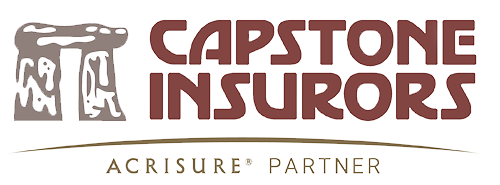A good employee benefits package that appropriately fits your employees’ needs is an important part of the formula for most companies’ success. The right benefits package helps to attract and retain employees, keeps them motivated, and inspires them to give you their best. But as we all know, benefits can be expensive, and finding the right benefits at the right price can be a time-consuming, sometimes frustrating experience. It’s here that the services of a benefits broker can make all the difference.
What should you look for in a benefits broker? How do you determine if a benefits broker is right for your business? What sets a terrific benefits broker apart from the rest of the field? If you’re in the market for a new benefits broker, here are a few things to keep in mind—
• Whereas agents represent specific insurers, brokers work with a variety of carriers. Therefore, in most cases, one benefits broker should be able to help you with all your company’s benefits needs, so long as that broker works with a decent number of carriers that offer the kinds of benefits you’re looking for. A broker also should have the kind of experience and relationships with insurance carriers that your company can leverage to get the products and services you need at the best price.
• A broker should not only help you find the right benefits at the best price; he or she also should make sure that you’re getting exactly what you pay for. A broker should be involved enough with billing and other processes to be able to ascertain that you’re not being overcharged, paying for employees who are no longer on the payroll, etc.
• Compliance issues loom as a challenge for any employee benefits plan sponsor. With federal laws and regulations and state laws and insurance mandates, it’s grown increasingly difficult to stay on top of all the rules that may apply to the benefits plans you offer. A good benefits broker will be thoroughly versed in all compliance issues relevant to your employee benefits offerings, helping you to avoid fines, penalties and other legal action.
• An effective benefits broker will want to understand all aspects of your business operations and needs and will be familiar with the benefits practices of companies in the area in similar industries and of similar size. This knowledge is critical to the broker being able to advise you on crafting the benefits package that your company needs to compete for talent.
• The employee benefits field is a very fluid, fast-moving industry, where new products, services and technologies are emerging all the time. You want a broker who is extremely knowledgeable about the benefits industry; one who is current with trends and developments, and what is “state of the art” in the field.
• Nothing decreases the value of your benefits package like claims difficulties. If employee claims are mismanaged, processed incorrectly or delayed, both your employees and your HR/benefits staff will be frustrated and dissatisfied. Your benefits broker should be proactive in working with employees, staff and insurers to maximize smooth claims flow, and be an advocate for employees and for the company when claims difficulties do arise.
• Benefits renewal/open enrollment is a time-intensive, high stress period for any company. A benefits broker should provide assistance to make this time as smooth as possible, and be available to you well in advance of renewal time to begin the process.
The best way to ascertain that a benefits broker possesses these characteristics is to ask questions, both of the broker and his or her current clients. Ask for a reference list when interviewing candidates and make the calls to check it out. Do your homework, and you'll increase your chances of finding a broker who can help your investment in benefits pay off for your organization and your employees.
